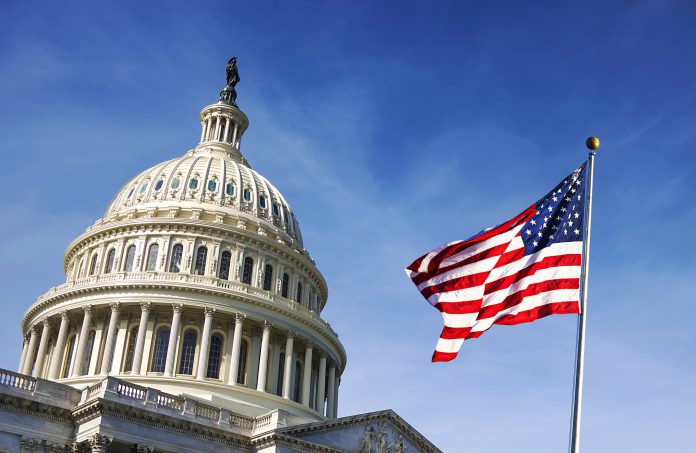House passes GOP debt ceiling package that would slow spending growth and raise the federal debt ceiling by $1.5 trillion.
The U.S. House of Representatives on Wednesday passed the Limit, Save, Grow Act of 2023 as the debt ceiling debate continues in the nation’s capital.
House speaker Kevin McCarthy introduced the legislation on April 19, which would “limit federal spending, save taxpayer dollars,” and “grow the economy.”
The legislation passed 217-215. Four Republicans voted against the bill, which did not get a single vote from a Democrat.
According to a press release, the legislation would specifically:
- “End the Era of Reckless Washington Spending
- “Reclaim Unspent COVID Funds
- “Defund Biden’s IRS Army
- “Repeal ‘Green New Deal’ Tax Credits
- “Prohibit [President Joe] Biden’s Student Loan Giveaway to the Wealthy
- “Strengthen the Workforce and Reduce Childhood Poverty
- “Prevent Executive Overreach and Restore Article I
- “Lower Energy Costs and Utilities”
The plan also includes “a responsible debt limit increase.”
“In exchange for these pro-growth and cost-saving policies, the debt limit would be responsibly lifted through March 31, 2024 or by $1.5 trillion—whichever occurs sooner—and be transmitted to the ever-so-robust legislative agenda of the United States Senate,” the press release said.
Rep. Scott Perry, chairman of the conservative House Freedom Caucus, tweeted earlier Wednesday that the Act “isn’t perfect, but it’s a huge step in what will be a years-long process in setting America back on track and fixing our fiscal crisis.”
The White House spoke out against the bill and on Tuesday labeled it a “reckless attempt to extract extreme concessions as a condition for the United States simply paying the bills it has already incurred.”
“Altogether, this legislation would not only risk default, recession, widespread job loss, and years of higher interest rates, but also make devastating cuts to programs that hard-working Americans and the middle-class count on,” the White House’s Office of Management and Budget said in a statement of administration policy. “The bill would make it easier for wealthy tax cheats to avoid the taxes they owe, even as House Republicans are advancing other proposals that would spend trillions more on tax cuts skewed to the wealthy and big corporations, undoing much or all of the deficit reduction in this legislation.”
“The bill stands in stark contrast to the President’s vision for the economy. The President’s Budget invests in America, lowers costs for families, grows the economy, and reduces the deficit by nearly $3 trillion by asking the wealthy and large corporations to pay their fair share,” the statement said. “Therefore, if the President were presented with the Limit, Save, Grow Act of 2023, he would veto it.”
EJ Antoni, a research fellow for regional economics in the Center for Data Analysis at The Heritage Foundation, weighed in on the legislation ahead of the vote. (The Daily Signal is Heritage’s multimedia news organization.)
“The nation’s financial trajectory is so perilous that few people seem to understand the radical changes we must make. The Limit, Save, Grow Act of 2023 is the bare minimum to begin turning the ship of state around,” Antoni told The Daily Signal in a statement. “It will save taxpayers $4.8 trillion by slowing the growth of spending, but it still allows spending to grow.”
“After this bill is passed, the conversation needs to center around not reducing the growth of spending, but reversing it. The government needs to eventually stop the borrowing and pay down the debt,” Antoni said.
Kevin Roberts, president of The Heritage Foundation, applauded the passage of the bill in a tweet.
“Tonight’s debt ceiling vote is a victory for Americans ready to take power back from Washington,” he wrote.
Originally published by The Daily Signal. Republished with permission.
For more great content from Budget & Tax News.











